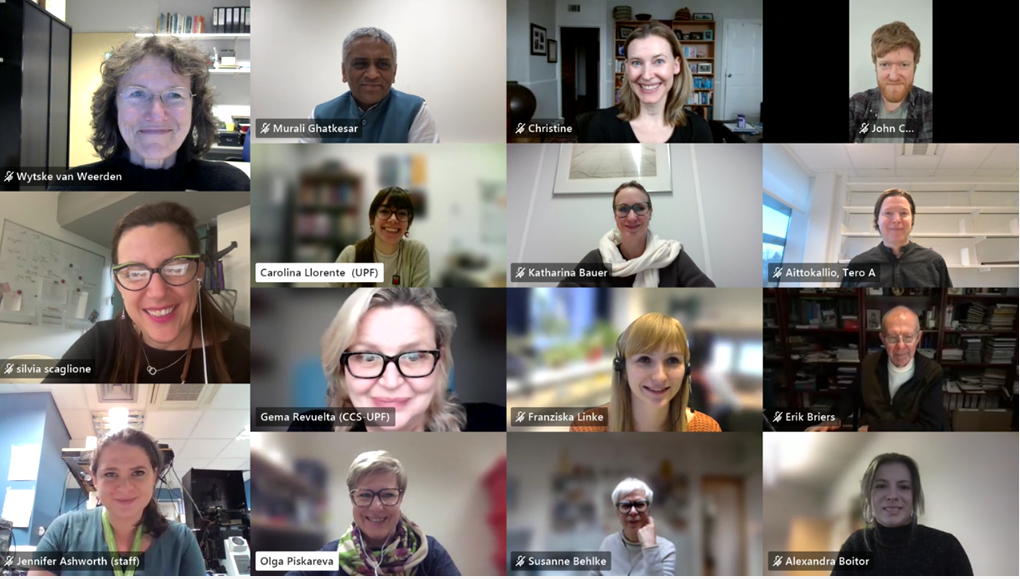The Macrophage Targets for Metastatic Treatment (Mac4Me) project is an innovative Doctoral Network focused on advancing cancer research, with the aim of improving the treatment of cancer and metastasis. It adopts a multidisciplinary approach, emphasizing patient-centered research and effective communication strategies to share results with diverse audiences.
The main objective of Mac4Me is to enhance our understanding of how tumor cells interact with the immune system at metastatic sites. By utilizing cutting-edge organ-on-chip systems and artificial intelligence algorithms, the project aims to identify new immune therapeutic targets and improve the efficacy of immunotherapy for metastatic cancer. The integration of clinical metastasis data with AI-driven analysis will also support the identification of innovative treatments.
Addressing a Critical Need in Cancer Treatment.
Metastasis is responsible for the vast majority of cancer-related deaths, yet it remains one of the most challenging aspects of cancer to treat. Projects like Mac4Me aim to tackle this by studying how tumor cells interact with the immune system at metastatic sites, which is essential for developing more effective therapies.
One of the project’s standout features is its use of organ-on-chip systems, offering a more ethical and accurate alternative to traditional animal models. This innovative approach not only improves the predictive power of research but also aligns with the growing demand for humane research practices.
Integrating artificial intelligence (AI) into the project allows for the analysis of extensive clinical data, paving the way for personalized treatment strategies. Moreover, Mac4Me prioritizes patient involvement, ensuring that research aligns with societal needs and expectations. This focus on patient-centered research fosters shared decision-making, ultimately leading to treatments that are not only effective but also acceptable to patients.
By developing effective communication strategies, Mac4Me also aims to enhance public understanding of cancer research, bridging the gap between scientific advancements and societal awareness. Overall, the project promises significant impacts on cancer treatment, ethical research practices, and patient engagement in healthcare.
The consortium
Mac4Me brings together a multidisciplinary team of academic and non-academic partners from across Europe. PhD candidates in the network will collaborate closely through a dynamic educational program and participate in short-term research visits with partner institutions as part of their training.
Check the details on the dedicate website!

Ph.D. Position
Developing a multi-compartmental and immune competent organ on chip to recapitulate cancer metastasis
Job description
Mac4Me (Macrophage Targets for Metastatic Treatment) is a pan-European Marie Skłodowska-Curie Doctoral Network (DC) aimed at understanding the specific tumour cell-immune host interactions at the metastatic site to identify new immune targets. Mac4Me will use animal-free organ-on-chip (OoC) systems to recapitulate early liver, bone and brain metastasis of cancer developing across our life, such as neuroblastoma, breast and prostate cancer. Data from these preclinical models will be integrated with real-world clinical data using AI approaches to identify new immune targets. Mac4Me offers a unique and innovative research training programme comprising both scientific knowledge and transferable skills and integrating participatory science principles as a starting point.
At React4life, the candidate will focus on the design and development of an multicompartmental OoC integrated with (age-relevant) organ-resident and blood monocyte-derived macrophage population, to recapitulate the cancer cells infiltration and survival in a physiological capillary flow and also to test potential macrophage-targeted compounds in the OoC platform.
The PhD candidate will work in close collaboration with other Mac4Me candidates that focus on the cancer metastasis. Intensive collaboration and short-stay research visits to our partners in Ireland (Royal College of Surgeons), Germany (Goethe University Frankfurt), United Kingdom (University of
of Nottingham), are planned as an integral part of the project. The research will be complemented with a multidisciplinary educational agenda shared by all Mac4Me candidates.
Work environment
React4Life is an innovative and cutting-edge biotech company based in Genoa, recognized for its excellence in developing advanced organ-on-chip technologies. The candidate will have the opportunity to join this dynamic environment, working at the forefront of biomedical research. React4Life is committed to providing high-quality solutions for drug testing and disease modeling, with a strong focus on innovation and the development of next-generation in vitro models.
In addition to the exciting work at React4Life, the candidate will benefit from the Mac4Me consortium, that offers a dedicated training program, regular meetings, workshops, and annual secondments to various partners, providing an exceptional interdisciplinary network and training experience.
As part of the team at React4Life, the candidate will collaborate closely with researchers and experts in the field of cancer research, advancing organ-on-chip models for personalized medicine and drug discovery, with potential applications in various types of cancer and other complex diseases
Qualifications and skills
You are a highly motivated international candidate with a university MSc degree. At the time of recruitment, you must not have resided or carried out your main activity (work, studies, etc.) in Italy for more than 12 months in the 3 years immediately prior to recruitment. You have received excellent scientific training in the field of Biomedical Sciences, Biotecnology, Immunology, Medicine or a related field.
A successful candidate will have an interest in the cellular biology of cancer and immune cells. Experience with 3D cell culture techniques and/or organ on chips will be considered a strength. Our potential new colleague should have outstanding theoretical and experimental research skills, and a pronounced team spirit. A strong command of scientific English in speech and writing is essential. A certificate of conduct from the candidate is a condition for the appointment.
DEADLINE: December 31st, 2024


